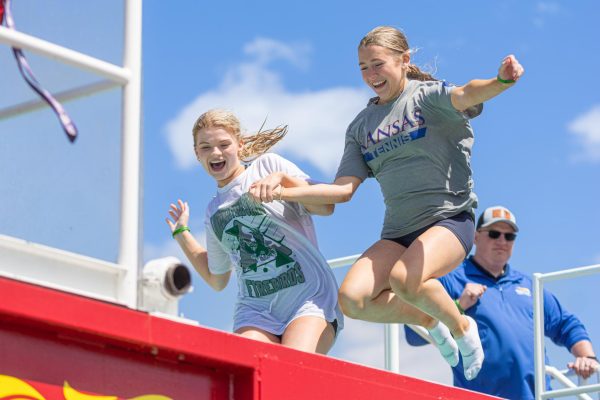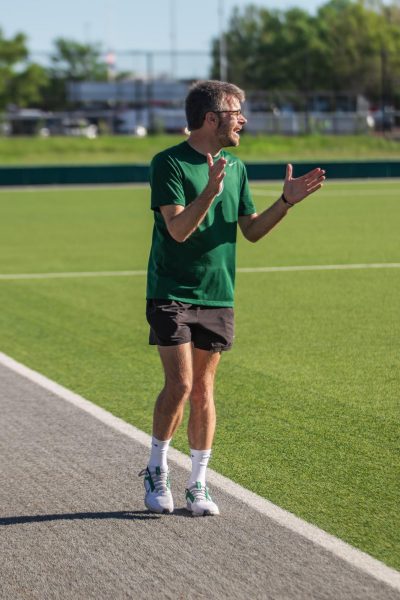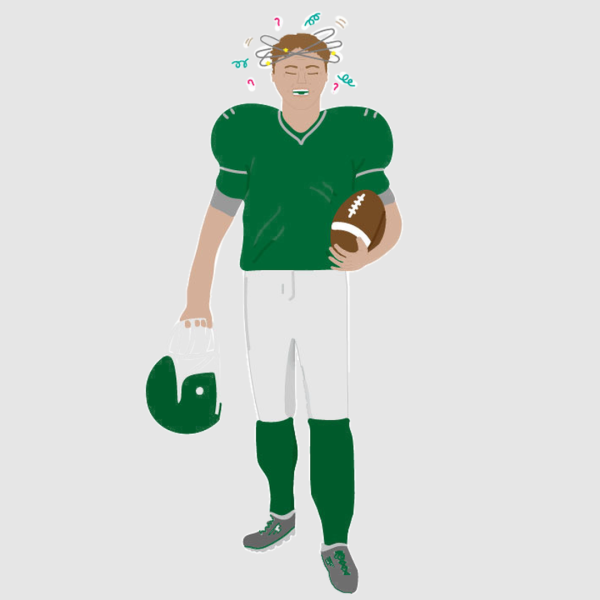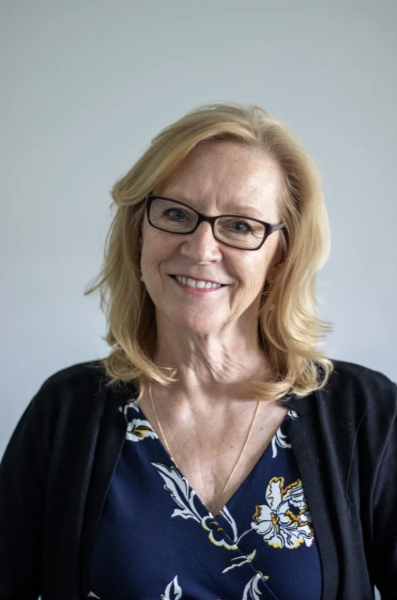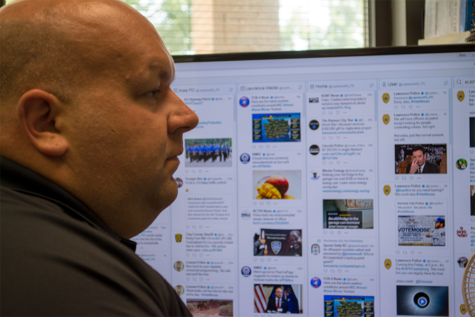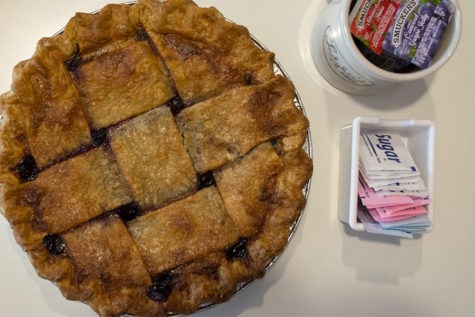Women’s March encourages political activism in community, nation
Adorned with Wonder Woman and a bright American flag, protestors in Washington, D.C. gather.
Women and men marched through the streets across the world, carrying signs protesting the violation of women’s rights and the latest president elect. Social studies teacher Jordan Boyd was present at the Topeka march with her family.
“My sister and her boyfriend made some signs that just said ‘Women’s rights are human rights.’ It’s something that is a beautiful message and something that people might tend to forget sometimes.” Boyd said.
She and several other teachers and students gathered in Topeka to listen to speakers, hold signs and march.
“I was impressed at how peaceful it was [and] it was friendly and gracious as far as participants and how we managed to crowd together. It was very relaxed and friendly,” Transition coordinator Lorna Larson said.
While many students and faculty attended the protest in Topeka, some travelled to Washington D.C. to participate in the national Women’s March there.
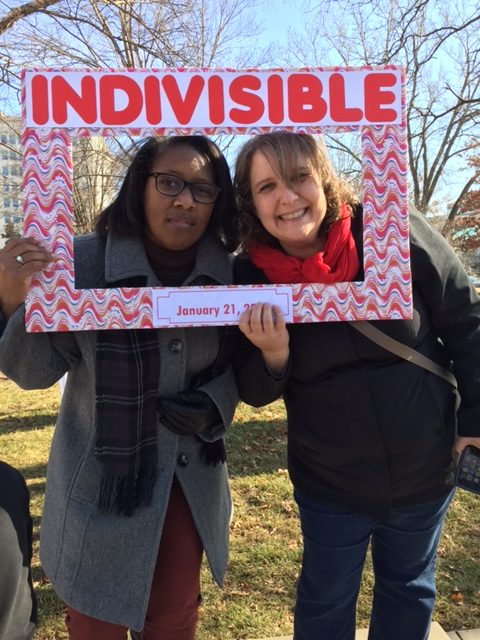
Posing in a mock picture-frame sign, Tina Mitchell and friend stand at the Topeka capital.
Senior Meredith Shaheed, who made the trip to Washington D.C., described the overall positive environment.
“It was very hopeful and very electric. The energy was just awesome [and] so many people were around us marching. Everyone felt connected.” Shaheed said.
Although millions participated in the marches, some students doubt the public display will have any lasting effect. Senior Lane Weis did not believe the march made an impact on the national government.
“I’m not really sure it will make much of an impact considering our current administration. If anything it will send a message that people are fed up, they are tired of this, they need progress. I feel like everyone in the government are already aware of that they just don’t necessarily agree,” Weis said.
Freshman Lily Johnson believed the march could make a large impact for our great nation.
“There were a lot of different marches around the whole world like the one in D.C. and….all of these people getting together kind of made it known across the world.” Johnson said.
Another big part of the march was the type of signs that were present at the event
Marchers used the signs to inform people about their thoughts and situation.
“There was one my mom made [and] it was a quote by Eleanor Roosevelt that said; ‘No one can make you feel one inferior without your consent.’” Johnson said.



